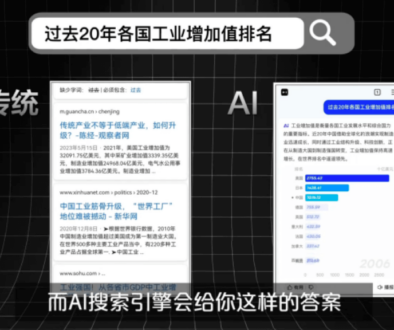Baidu Releases Mobile Search Landing Page Experience White Paper 4.0
In the rapidly evolving digital landscape, Baidu has taken a significant step forward with the release of its “Mobile Search Landing Page Experience White Paper 4.0.” This latest update is a testament to Baidu’s unwavering commitment to optimizing mobile search experiences, ensuring users have access to fast, reliable, and high-quality content.
Baidu’s Commitment to Mobile Search User Experience With the mobile internet era in full swing, Baidu has focused its efforts on enhancing the browsing experience for mobile search users. The latest White Paper 4.0 represents an evolution from the previous 3.0 version, bringing comprehensive improvements in areas such as page loading, ad placement, interactive functionality, and overall resource effectiveness. These improvements are a clear indication of Baidu’s dedication to reshaping the mobile ecosystem, enhancing both user satisfaction and content quality.
Explanation of Key Terms Understanding Baidu’s White Paper requires familiarity with specific terms:
- Main Content: The core message or information a page intends to convey.
- First Screen: The initial content seen by users upon arriving at a page, without scrolling.
- One Screen: The content visible at any point as a user scrolls before the main content ends.
- Mobile Adaptation: Techniques ensuring that web pages initially designed for PCs are accessible and readable on mobile devices.
- List Page vs. Detail Page: Distinctions between pages that aggregate information and those that provide detailed views.
- Advertising: Various forms of promotional content within pages, including Baidu’s specific regulations.
Baidu Mobile Search Landing Page Experience Standards The White Paper sets forth detailed standards to enhance the mobile browsing experience:
- Resource Fluidity:
- Page Load Speed: Pages should load their first screen content within 1.5 seconds.
- Loading Effects: Dynamic loading animations are required for a smoother user experience.
- Page Browsing Experience:
- Layout and Typography: Design elements like font size and text spacing should be mobile-friendly.
- Mobile Adaptation: Pages must be optimized for mobile viewing, avoiding the need for zooming or horizontal scrolling.
- Ad Standards: Clear guidelines on the placement and types of advertisements allowed on landing pages.
- Resource Usability:
- General Page Standards: Functional buttons must be stable and not misleading.
- Prohibition of Automatic App Triggers: Websites must not automatically prompt app downloads.
- Audio/Video Standards: Ensuring smooth playback and proper synchronization of multimedia elements.
Conclusion: Baidu’s ongoing efforts to improve mobile search experiences highlight the company’s commitment to a positive, user-friendly mobile search ecosystem. By setting clear standards, Baidu not only encourages content creators and service providers to produce higher quality content but also ensures that users have a seamless and enjoyable browsing experience. As the digital landscape continues to evolve, adherence to these standards will be crucial for those looking to thrive in the Baidu search ecosystem.
Call to Action: Content creators and service providers are encouraged to align with Baidu’s standards, contributing to a healthier and more user-centric mobile search environment. This collective effort will pave the way for a more dynamic and engaging digital future.



